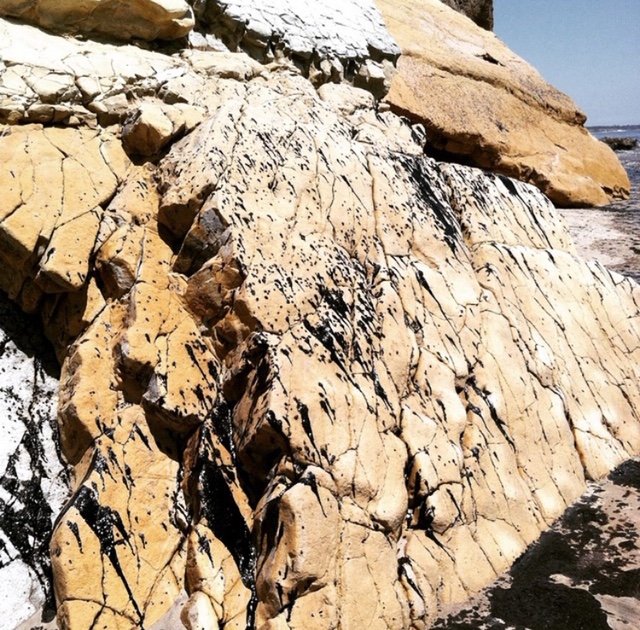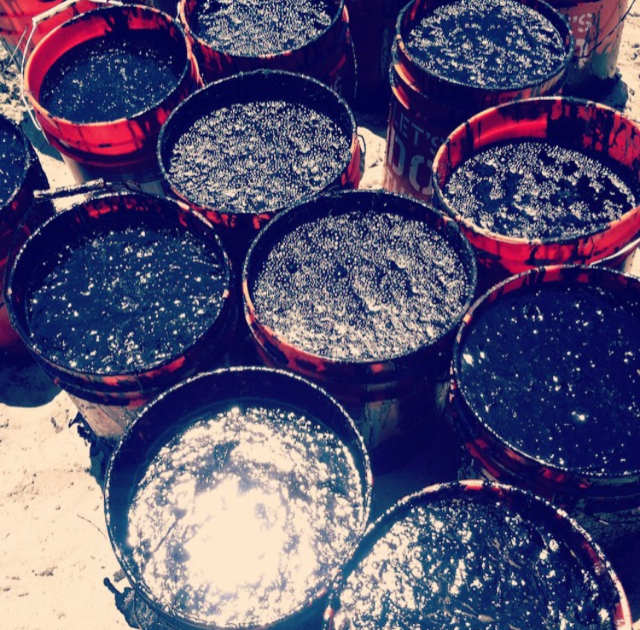Refugio State Beach, five years after oil spill

SANTA BARBARA, Calif. -- In past years surfers, swimmers and environmentalists marked the anniversary of the destructive 2015 oil spill off the Gaviota Coast near Refugio Beach.
This year, the popular area has fewer beachgoers as the parking lot is closed because of the COVID-19 pandemic and people are having to trek in.
Linda Krop, Chief Counsel for the Environmental Defense Center, reflected back on the disaster and called the Refugio spill "a wake up call" for the community.
"I think people are so used to seeing the platforms out there and I think this was a reminder that this is a very risky business," Krop said. "The pipeline carrying the oil was a fairly modern pipeline and yet look what happened."
It was May 19, 2015 when a corroded pipeline, Line 901, owned and operated by Texas-based Plains All American Pipeline, split apart above the northbound lanes of Highway 101, creating a waterfall of thick, black crude oil that cascaded into one of the most biologically diverse sections along the Santa Barbara County coastline.
"We arrived at the beach the very first day of the oil spill and it was so much worse than any of us expected," Krop said. "Every wave was carrying it out in the ocean, there was no clean up happening at the time. It really didn't happen until the next day, 24 hours later."
Over the course of many days, more than 142,000 gallons of oil spewed out into the Pacific Ocean and spread down the coastline to beaches as far as 100 miles away.
Thousands of south coast residents volunteered to help with the cleanup effort.

Birds and other wildlife died after struggling in the oily sludge while beaches, plants and rocks along the shore were coated with the toxic mixture.
The company was criticized for taking 90 minutes to alert federal responders to the environmental disaster.
Santa Barbara County District Attorney Joyce Dudley released the following statement: "Santa Barbara County is frequently referred to as Paradise. The visual crown jewell of our paradise is our beaches and mountains. This spill killed our marine life, harmed not just our beaches and ocean but also our businesses."
Eventually, 46 counts were filed against Plains All American Pipeline, including four felonies.
In September of 2018, following years of legal proceedings and a three month long trial, a Santa Barbara Superior Court jury found the Texas-based company guilty of nine counts, including one felony, in connection with the May 2015 oil spill.
Following the verdict, Plains All American released a statement which reads in part: "Plains continues to accept full responsibility for the impact of the accident. We are committed to doing the right thing. This was validated by testimony at trial regarding our comprehensive cleanup effort and by the fact that the verdict reflected no knowing wrongdoing by Plains or our employees with respect to the operation of Line 901."
In April of 2019, Plains was ordered to pay a fine of nearly $3.35 million dollars, well below the prosecution's target of $1.2 billion dollars. Local environmentalists called it a "slap on the wrist."
"When you think about the harm that occurred, you can't just fix it with dollars," Krop said. "You can't bring back all the dolphins the seals and hundreds of birds that died or were injured."
Krop said seven platforms shut down following the 2015 spill, however, the threat of additional spills remains.
"Exxon Mobile own the three platforms right off El Cap, right off the Gaviota Coast and Exxon wants to restart those platforms," Krop said. "So, the same platforms that were producing oil that leaked onto our beaches are proposed for restart right now and the EDC and clients are fighting that right now."
Krop also said that Exxon wants to truck oil from those three platforms along Highways 101 and 166, both of which recently saw accidents involving oil-hauling trucks.
"Exxon wants to send 70 truckloads a day full of crude oil produced from the platforms off our coast."
Hearings on Exxon's project will start this summer, likely sometime in August.
